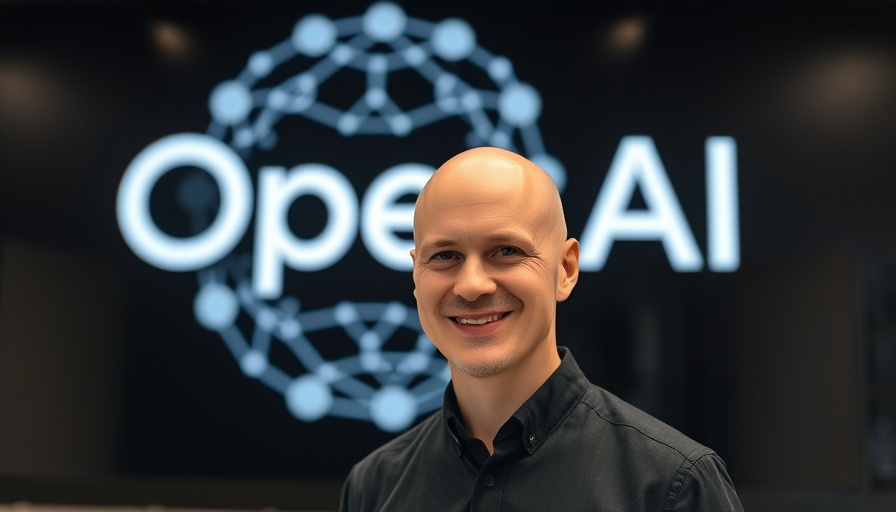
Apple Enters the AI Landscape with an Answer Engine
In the ever-evolving tech industry, Apple is preparing to take a significant stride by potentially developing its own AI 'answer engine.' Recent reports from Bloomberg’s Mark Gurman reveal that Apple has assembled a dedicated team, named "Answers, Knowledge, and Information," to create an app comparable to ChatGPT. This venture is not just a reaction to advancements made by competitors; it's a strategic move aimed at enhancing user interaction across their ecosystem with more sophisticated tools.
The Quest for Knowledge: How Apple's AI Could Transform Your Experience
The implications of Apple's AI answer engine could revolutionize how users access information. Imagine asking Siri not only factual questions but receiving nuanced, contextual answers drawn from the entirety of the web. This functionality could extend beyond Siri into platforms like Safari, enhancing how users interact with digital content and making information retrieval as seamless as possible. By providing refined, contextual responses, Apple could significantly improve user experiences across its devices.
AI Partnerships: The Future of AI in Apple’s Ecosystem
While the development of the answer engine marks an exciting milestone, it's important to note that Apple has already begun integrating AI capabilities into Siri. For instance, during recent updates, they have worked to incorporate elements of ChatGPT directly into their voice assistant. The challenge remains: Apple has been slow to implement these updates consistently. However, as competition in AI accelerates, Apple must ensure that its offerings are not only keeping pace with but exceeding user expectations.
Navigating Challenges: The Balance Between Innovation and User Privacy
As Apple steps further into AI, attracting talent with expertise in search algorithms and engine development, the question of user privacy looms large. While the tech giant has built a brand around user-centered privacy, the data requirements for developing an effective AI response mechanism could create tensions. This balancing act will be crucial, especially given ongoing scrutiny surrounding data privacy practices across technology companies.
Strategic Moves in the AI Landscape: Apple vs. Google
Additionally, Apple's anticipated advancements in AI are occurring within a wider context of shifting alliances and negotiations, particularly regarding their search agreement with Google. The pressure mounts for Apple following Google's recent antitrust rulings, which may necessitate changes in their business partnerships. This evolution creates an opportunity for Apple to position its answer engine as a standout alternative in search capabilities, effectively leveraging any changes to its existing agreements.
Emerging Trends in AI Development: What Lies Ahead
As Apple accelerates its AI initiatives, we can expect a surge in new technologies and applications, driven by public demand for smarter devices. Notably, consumer expectations for personalization and efficiency in technology are at an all-time high. Apple's response to this demand could set a new standard in tech, influencing how other companies approach AI development. If successful, Apple’s answer engine has the potential not just to answer questions but to fundamentally change the way users engage with their devices and the digital world.
Final Thoughts: What This Means for You
For Apple users and tech enthusiasts alike, this development signifies a move toward a more connected and informed digital experience. The capabilities offered by an effective AI engine could lead to more intuitive interactions with devices. While the precise impact of Apple's answer engine remains to be seen, the industry watch on how this unfolds is essential. As technology advances, staying informed on developments shapes our understanding of the tools that will soon become integral to our lives.
In conclusion, as Apple ventures into the AI domain, its approach will not only define its own future but could also reshape user expectations and industry standards in artificial intelligence. Keep an eye on this promising development, as it may soon change everything about how we find answers in the digital age.
 Add Row
Add Row  Add
Add 




Write A Comment